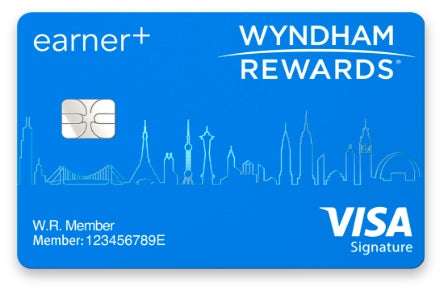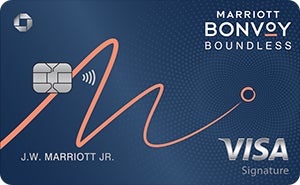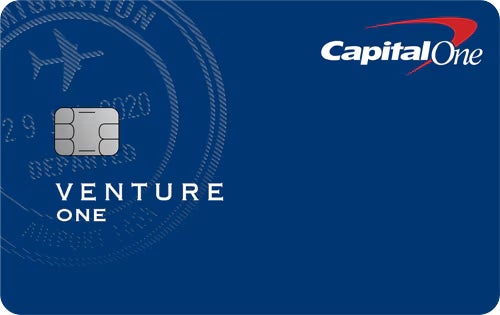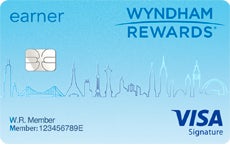| Rewards Rating: | 4.2 / 5 |
| Rewards Value | 4.0 |
| APR | 3.0 |
| Rewards Flexibility | 3.0 |
| Features | 3.0 |
| Issuer Customer Experience | 2.0 |
In a Nutshell:
This card can offer great value for occasional travelers who prefer to stay at Wyndham hotels, especially via its high rewards rate on gas and generous anniversary bonus (a perk that’s hard to come by on a no-annual- fee hotel card).
See rates and fees
Rewards Rate:
|  |
Introductory Bonus: Earn 30,000 bonus points, enough for up to four free nights after spending $1,000 on purchases in the first 90 days |  |
Annual Bonus: 7,500 bonus points on your anniversary every year when you spend $15,000 on eligible purchases |  |
Annual Fee $0 |  |
APR 20.49%, 24.74% or 29.74% variable |  |
Barclays Customer Service Ratings
|  |
Other notable features: Intro APR offer on balance transfers, intro APR offer on Wyndham Timeshare Purchases, automatic GOLD level benefits, cardmember booking discount
If you prefer to stay at Wyndham hotels and are looking for a hotel rewards card that earns points on much of your everyday spending, the Wyndham Rewards Earner Credit Card could be a terrific fit.
The card charges no annual fee and earns rewards in some of the most popular everyday spending categories, including gas, groceries and dining. That should make it easy to rack up points for your next Wyndham stay, even if you don’t actually spend a ton on travel.
The card also stands out for its annual bonus of 7,500 points each anniversary year if you spend $15,000 on eligible purchases. If you use the card for most of your spending, that perk shouldn’t be tough to earn and should net you enough points for at least one free hotel stay per year with Wyndham (a benefit that’s hard to find on no-annual-fee hotel cards).
The Earner card also shines with its balance transfer offer, which could be a big help if you need to chip away at existing debt but don’t want to sacrifice long-term rewards. Indeed, it’s one of the only hotel rewards cards to offer this perk.
That said, the Earner card is far from your most flexible or lucrative rewards option. Unlike general travel rewards cards, which let you redeem points for stays with nearly every hotel chain or even transfer points to several hotel loyalty programs, the Earner card locks you into redeeming points with Wyndham and its limited set of partners. Plus, while Wyndham points can offer more value than the rewards you’d earn with some competing hotel loyalty programs, they’ll still likely fall short of the value offered by general travel rewards cards.
Overall, if you’re looking for Wyndham-specific perks and don’t mind redeeming rewards only with Wyndham and its partners, this card could be a solid option. But if you want maximum flexibility, a general travel rewards card or a higher-tier Wyndham card may be a better fit.
Pros
- Terrific anniversary bonus for a no-annual-fee hotel rewards card
- Solid everyday rewards rates — especially on gas
- Award chart makes it easy to see how far your points can take you
- One of the only hotel cards that comes with an intro APR offer on balance transfers
Cons
- You can only redeem points with Wyndham and its partners
- Partners have very poor transfer ratios
- The higher-tier Wyndham card may prove more valuable overall, even with an annual fee
- Doesn’t include an intro APR offer on regular new purchases
- Limited options to use points to partially cover stays
Why you might want the Wyndham Rewards Earner card
For a no-annual-fee hotel card, the Wyndham Rewards Earner card offers several compelling benefits, including a solid everyday rewards rate and anniversary bonus. Its balance transfer offer is also unique, making it a great option if you need to pay off debt but want a card that will earn its keep even after you’ve settled your balance.
Solid everyday rewards, especially on gas
Along with earning points on Wyndham stays, the Earner card offers bonus points in three key everyday spending categories: gas, groceries and dining. This makes the card a decent option if you’re looking for a standalone rewards card that earns Wyndham points. The card’s category variety is also a welcome feature since some airline and hotel cards only offer a high rewards rate on purchases made with their respective brand.
You’ll earn 5 points per dollar on Wyndham purchases and on qualifying gas purchases, as well as 2 points per dollar on eligible dining and grocery store purchases (excluding Target and Walmart purchases). All other purchases (except for Wyndham Vacation Club down payments) earn 1 point per dollar.
While 2 points per dollar on dining and grocery store purchases isn’t earth-shattering, it’s a decent rate for a co-branded hotel card with no annual fee. Where the card shines is with its 5 points per dollar on qualifying gas station purchases. That’s on the high-end even compared to the rates you’ll find on some of the best credit cards for gas and is easily one of the highest rates you can get on gas with a no-annual-fee hotel rewards card (matched only by the Hilton Honors American Express Card).
If you’re a Wyndham fan who spends a lot of time on the road, this rewards rate could make the Earner card one of the best options out there.
Good sign-up bonus value
Along with its ongoing rewards, the Wyndham Rewards Earner card offers a solid sign-up bonus for a no-annual-fee rewards card. You can earn 30,000 points after you spend $1,000 in your first 90 days.
Based on Bankrate’s latest hotel point value estimates, which give Wyndham points an average value of around 0.9 cents each, we estimate this bonus is worth around $270 in hotel stays. That’s a better value than you’ll find on many competing no-annual-fee rewards cards.
Plus, since Wyndham is one of the few hotel loyalty programs that still uses an award chart, this bonus may prove even more valuable. Wyndham lets you redeem points for go free® stays in three set tiers of 7,500, 15,000 and 30,000 points, so this bonus could get you as many as four free nights at a Wyndham property (if you book at the lowest tier). That could be more nights than you’d get from a loyalty program that used a dynamic rewards pricing model.
A decent option for paying off debt
The Earner card is also one of the only hotel rewards cards that comes with an introductory APR offer on balance transfers. You can take advantage of a 0% intro APR for 15 months on balance transfers made within 45 days of account opening, after which a variable APR of 20.49%, 24.74% or 29.74% applies.
While this isn’t the longest intro APR offer you can find on balance transfers (some of the best balance transfer cards offer an intro APR for 18 to 21 months), it’s still relatively long, especially for a travel card. Dedicated balance transfer cards also tend to lack rewards programs, making the Earner card a decent choice for Wyndham fans who need to chip away at existing debt but don’t want to sacrifice earning rewards long term.
Just keep in mind the card’s 3% balance transfer fee (or $5, whichever is greater) and be sure to prioritize paying off debt before you rack up a large balance on a rewards card.
Tip: Try out a balance transfer calculator to compare card offers and see which will save you the most money as you work to pay off debt.
Terrific anniversary bonus for a no-annual-fee hotel card
Another notable benefit of the Earner card is its annual bonus, which gives you a chance at 7,500 points each anniversary year if you spend $15,000 on eligible purchases. Based on Wyndham’s award chart, that’s enough for a free stay at a low-tier Wyndham property.
You’d also earn at least 15,000 points on your way to this bonus (since you’ll earn a minimum of 1 point per dollar on all purchases). Essentially, earning this bonus can get you up to three free stays with Wyndham.
While free night awards are a common feature on hotel rewards cards, they’re hard to come by if you’re looking to avoid an annual fee. In fact, the no-annual-fee cards from Hilton, IHG and Marriott all lack an annual free night award perk.
To get comparable value or an annual free night award with one of the other major hotel brands, you’d need to upgrade to one of the following cards, all of which charge annual fees:
- The Hilton Honors American Express Surpass® Card, which offers a free night reward at a Hilton property each calendar year after you spend $15,000 ($150 annual fee, see rates and fees)
- The Marriott Bonvoy Boundless® Credit Card*, which offers an annual free night stay in a hotel up to 35,000 points every year after your account anniversary ($95 annual fee)
- The IHG One Rewards Premier Credit Card, which offers 10,000 bonus points each anniversary year in which you spend $20,000 on purchases and then make one additional purchase ($99 annual fee)
Why you might want a different card
Despite its low cost, generous rewards rate and annual perks, the Earner card may not be the most lucrative option overall, even for Wyndham fans. General travel rewards cards should offer more flexible and valuable points, or the higher-tier Wyndham rewards card may offer enough value to make it worth the upgrade despite its annual fee.
Less flexible than general travel rewards cards
One key disadvantage of the Wyndham Rewards Earner Card (and most co-branded hotel or airline cards) is that it forces you to sacrifice redemption flexibility for brand-specific perks. The only redemption option that generally makes sense with this card is to redeem points for stays with Wyndham.
While you could also transfer points to one of Wyndham’s partner airlines, all of these programs offer a 5:1 transfer ratio, with a 6,000-point minimum transfer (meaning 6,000 Wyndham points only get you 1,200 points or miles with the airline). This is almost always an impractical option, since it would mean sacrificing 80% of your Wyndham points.
General travel rewards cards have a huge advantage in this area. Cards like the Capital One Venture Rewards Credit Card, the Chase Sapphire Preferred® Card, the Citi Premier® Card (The Citi Premier Card is no longer available) and the luxury Amex travel cards let you redeem points with any hotel or airline. They also carry more favorable transfer ratios to partner airlines and hotels.
Since you can earn points with these cards and still redeem for stays with Wyndham, there’s little downside to using them instead of a Wyndham co-branded card — unless you’re wary of annual fees or especially invested in Wyndham-specific perks.
Plus, while Wyndham’s set award chart makes it very easy to see how many free nights you can get for your points, it can also limit your ability to use your points when you need them. Free nights are only available in 7,500-, 15,000- or 30,000-point chunks, so you may need to buy points to reach the threshold required for a free stay.
Alternatively, you could use points for a go fast® award, which gets you a discounted night for 1,500, 3,000, or 6,000 points per bedroom plus some cash at participating properties. Neither of these options is ideal, however.
Higher-tier Wyndham card may be more valuable
Despite its annual fee, the higher-tier Wyndham Rewards Earner® Plus Card may actually prove more valuable than the Earner card thanks to its higher rewards rates.
The Earner Plus card earns 6 points per dollar on Wyndham purchases and qualifying gas purchases (versus 5 points per dollar with the Earner card) and 4 points per dollar on dining and grocery store purchases (versus 2 points per dollar with the Earner card). While the Earner Plus card’s boosted rewards rate on Wyndham and gas purchases isn’t a game-changer, its rate on dining and groceries is likely a big enough jump to make it worth putting up an annual fee.
Here’s a quick breakdown of how much you stand to earn with each card, assuming you spend around $2,000 per year at Wyndham hotels, $150 per month on gas, $300 per month on groceries and $200 per month on dining (assuming an estimated point value of 0.9 cents per point):
| Card | Estimated rewards earned | Annual fee | Estimated earnings minus annual fee | Estimated free nights earned |
|---|---|---|---|---|
| Wyndham Rewards Earner card | $279 / 31,000 points | $0 | $279 / 31,000 points | 1-4 (depending on redemption tier) |
| Wyndham Rewards Earner Plus card | $421 / 46,800 points | $75 | $346 / 46,800 points | 1-6 (depending on redemption tier) |
As you can see, the Earner Plus card offers a higher earning potential than the Earner card and may come out on top despite its annual fee — even with only modest annual spending in its bonus rewards categories.
Annual bonus has its limitations
+++
The Earner card’s anniversary bonus (7,500 points each anniversary year if you spend $15,000 on eligible purchases) is a terrific perk for a no-annual-fee hotel card. However, it’s important to note this benefit’s limitations. Namely, it will only get you a free stay at a low-tier Wyndham property on its own.
While you may need to put up an annual fee to get a free night award with other hotel cards, these awards typically carry much higher redemption values. For example, the annual free night stay that comes with the Marriott Bonvoy Boundless every year after your account anniversary can be redeemed for a stay of up to 35,000 points — nearly five times the value of the Earner card’s perk.
With this in mind, it’s worth considering whether a higher-tier hotel card may be a better value than the Earner card overall, even if it carries an annual fee. After all, if you get $245 worth of value from an annual bonus (as we estimate the Bonvoy Boundless card’s annual free night stay is worth based on Bankrate’s 0.7-cent valuation of Marriott points), that could easily justify a $95 annual fee.
No intro APR offer on new purchases
The Earner card stands out as one of the only hotel rewards cards that also includes an intro APR offer on balance transfers. But if you’re more interested in financing new purchases than paying off debt, the card may be a disappointment.
The Earner card does not include an intro APR offer on regular purchases — only a 0% promotional intro APR for 6 billing cycles on Wyndham Timeshare Purchases (after which the regular variable APR of 20.49%, 24.74% or 29.74% applies).
A few competing no-annual-fee rewards cards let you redeem for travel and come with 0% intro APR offers that give you a chance to chip away at all new purchases while avoiding interest for a year or more, including:
- The Chase Freedom Unlimited® (0% intro APR on purchases for 15 months, after an APR of 18.24% - 27.74% Variable
- The Capital One VentureOne Rewards Credit Card (0% intro APR on purchases for 15 months, with a 18.49% - 28.49% (Variable) APR after that
- The Bank of America® Travel Rewards credit card (0% Intro APR for 15 billing cycles for purchases, with a 17.49% - 27.49% Variable APR on purchases and balance transfers after that)
How does the Wyndham Rewards Earner card compare to other travel rewards cards?
The Wyndham Rewards Earner card could be a great option if you’re focused on earning points and free stays with Wyndham and want to avoid an annual fee. It could also make sense if you need to pay down debt and want a chance to earn Wyndham points after you’ve settled your balance.
However, since you can only redeem rewards with Wyndham and its partners, the card falls short when it comes to flexibility. In fact, it may not even be the most lucrative Wyndham card, despite its $0 annual fee.
Here are a few other options to consider, including a couple of co-branded hotel rewards cards and one general travel rewards card:
 |  |  |
Rewards rate
| Rewards rate
| Rewards rate
|
Welcome bonus
| Welcome bonus | Welcome bonus |
| Annual fee $75 | Annual fee $95 | Annual fee $0 |
Other things to know
| Other things to know
| Other things to know
|
Wyndham Rewards Earner card vs. Wyndham Rewards Earner Plus card
The Wyndham Rewards Earner Plus card is worth a look, even if you’d planned on avoiding annual fees. The Earner Plus card’s much higher rewards rates and relatively low annual fee (just $75) mean it could end up being more lucrative than the Earner card in both the short and long term.
Along with its higher rewards rates, the Earner Plus card unlocks Wyndham Rewards Platinum status, which comes with various perks like early check-in and car rental upgrades. The card’s sign-up bonus is also 50% higher than the Earner card’s while requiring no extra spending (45,000 points after you spend $1,000 in the first 90 days, versus 30,000 points with the Earner card).
On the downside, the card’s higher annual fee won’t get you a higher annual bonus. You’ll still get just 7,500 bonus points each anniversary year (though you won’t have to meet the $15,000 spending threshold that comes with the Earner card’s annual bonus).
Wyndham Rewards Earner card vs. Marriott Bonvoy Boundless card
Though it charges a $95 annual fee, the Marriott Bonvoy Boundless card could be a more lucrative option overall than the Earner card.
That’s because the Bonvoy Boundless beats the Wyndham card in every spending category besides gas, earning 6 points per dollar at Marriott Bonvoy hotels and 3 points per dollar on the first $6,000 spent in combined purchases each year on grocery stores, gas stations, and dining. It also earns 2 points per dollar on general purchases (versus just 1 point per dollar with the Wyndham card).
The Bonvoy Boundless also offers a more valuable and easy-to-reach annual bonus: You’ll earn an annual free night stay in a hotel up to 35,000 points every year after your account anniversary. This perk not only lacks a spending requirement (the Earner card requires $15,000 in annual spending to earn its anniversary bonus), but also has a higher redemption value than the Earner card’s annual bonus (35,000 points versus just 7,500 points with the Earner card).
Wyndham Rewards Earner card vs. Capital One VentureOne card
If you’re looking to earn travel rewards and avoid annual fees, but also want the flexibility to redeem rewards with other hotel brands or for airfare, the Capital One VentureOne could be a great alternative to the Earner card.
Along with earning 5 miles per dollar on hotels and rental cars booked through Capital One Travel, this card earns a flat 1.25 miles per dollar on all purchases, which could make it more appealing if you’re looking for an ultra-simple rewards card. The card also stands out for its flexibility, allowing you to redeem miles for travel through Capital One or to cover outside past travel purchases (such as purchases made directly with an airline or via a travel site like Expedia), both at a flat value of 1 cent per mile.
You can even transfer rewards to partner airlines and hotels, potentially squeezing more value out of them in the process. Wyndham is also included in Capital One’s list of transfer partners, so you have an easy way to top off your rewards balance if needed.
How to use the Wyndham Rewards Earner card
- Spend at least $15,000 per year with the card to earn 7,500 bonus points
- Plan your go free® stays based on Wyndham’s award chart, which offers three set redemption tiers based on room and property: 7,500, 15,000 and 30,000 points.
- Consider using points for discounted stays if you don’t have enough to redeem for a go free® stay. You can get a discounted night for 1,500, 3,000, or 6,000 points per bedroom plus some cash at participating properties.
- Take advantage of the automatic status perks that come with the card (Wyndham Rewards GOLD members enjoy benefits like free WiFi, preferred room selection, late checkout, and more)
- Check your Wyndham Rewards account regularly for special offers like free nights after you book a certain number of consecutive nights.
Is the Wyndham Rewards Earner card right for you?
If you’re looking for an easy way to earn Wyndham points without worrying about juggling multiple cards, calculating point values or offsetting annual fees, the Wyndham Rewards Earner card could make a lot of sense. The card carries a solid everyday rewards rate, offers straightforward redemption and comes with a chance at an annual free night award — a feature missing from most no-annual-fee hotel cards. You can even take advantage of an intro APR offer to pay off debt — another rare feature among hotel cards.
But if you want the freedom to book with any hotel brand or to use your points for airfare or cash back, you’ll likely be better off with a general rewards card from Chase or Capital One. Even if you want to stick with a Wyndham card, the Earner Plus will likely be a more lucrative option thanks to its higher rewards rates, despite its annual fee.
That said, the Wyndham Earner card offers impressive value compared to many no-annual-fee hotel cards, so it could be a great fit for Wyndham fans who need to pay off debt and occasional travelers looking for Wyndham-specific perks.
*All information about the Marriott Bonvoy Boundless® Credit Card has been collected independently by CreditCards.com and has not been reviewed by the issuer.
All reviews are prepared by CreditCards.com staff. Opinions expressed therein are solely those of the reviewer and have not been reviewed or approved by any advertiser. The information, including card rates and fees, presented in the review is accurate as of the date of the review. Check the data at the top of this page and the bank’s website for the most current information.
Responses to comments in the discussion section below are not provided, reviewed, approved, endorsed or commissioned by our financial partners. It is not our partner’s responsibility to ensure all posts or questions are answered.
